Browse Exhibits (33 total)
Weapons of the Vietnam War
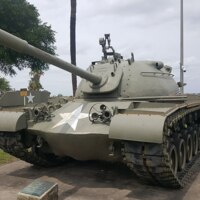
This entry describes the advanced weapons technology used in the Vietnam War, from firearms to armored vehicles to helicopters and fighter jets.
By Michaela Gerner
Tactical Air Control Party (TACP)
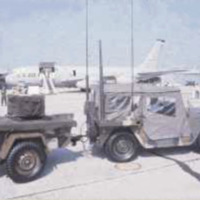
In the Vietnam War, helicopters became vital to the American military effort. Between transporting cargo and soldiers, helicopters in Vietnam were heavily relied on by personnel.This lead commentators to refer to the conflict as The Helicopter War.” In 1965, President Lyndon B. Johnson ordered Operation Rolling Thunder. This became America’s longest sustained aerial bombing campaign and fully pulled the U.S. into Vietnam. The Marine Corps created the Tactical Air Control Party (TACP) in 1961 to manage the military’s increasing need for airpower.
By Chelsey Moore
The Religion of Caodaism in Vietnam
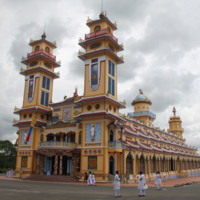
Summary and historical overview of Caodaism's development and impact in Vietnam.
By Daniel Snyder
Kent State Shootings
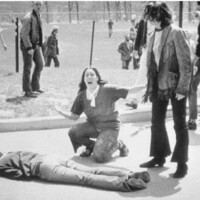
This piece details the National Guard's tragic shooting of students protesting the war at Kent State.
By Justin Fenicle
The Black Panther Party and the Vietnam War

The Black Panther Party was founded in 1966 during the middle of the Vietnam War. Although it was not created as an anti-war movement group, it has connections to the war as well as the Civil Rights Movement.
By Katie Buniski
The Marine Corps In Vietnam
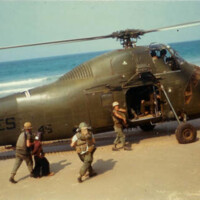
This exhibit provides information on the role and contributions in which the Marine Corps had played during the Vietnam War. It also entails details on some of their major missions, duties, and responsbilities in which they were tasked in dealing with during the War. Lastly, this exhibit provides a 1st hand account from Vietnam War Veteran Samuel C. Thompson of what it was like being a Marine during the Vietnam War.
By Joey Sanzone
The Impact of Agent Orange
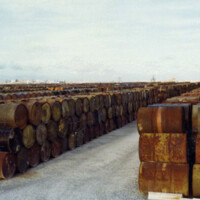
This article gives a brief history of agent orange: how it has impacted the environment, the water system, and people in Vietnam during the war. The entry not only gives readers an understsnding of how dangerous this chemical was during the Vietnam War, but also its ongoing impact today.
By Sharon Moore
Moratorium to End the War in Vietnam
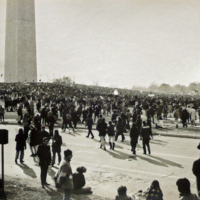
The 1969 Moratorium to End the Vietnam War became the largest anti-war demonstration of the 60s. An estimated 500,000 people attended the Moratorium in Washington, D.C on November 15, 1969.
By Mackenzie Moore
Operation Babylift
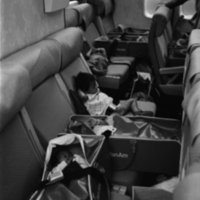
This entry gives a description of the United States' evacuation efforts of Vietnamese children during the fall of South Vietnam, including the tragedies that occured, as well as how this operation sparked nationwide controversy.
By Josh Elrod
Newspapers and coverage of the Tet offensive
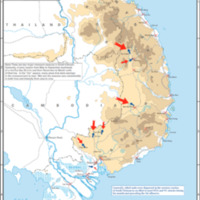
The Vietnam War is widely known as the first televised war. In addition to TV coverage, newspapers also played a key role in covering the Tet Offensive, informing the general public about this tragic event.
By Katherine Noll

